- Home
- Patricia McLinn
Left Hanging Page 4
Left Hanging Read online
Page 4
“That’s why I know not to step in it. Especially not in shoes like that with all that tread and grooves for it to get stuck in.”
“You want to know why I want to know?”
“You want to know what I know?” he shot back.
“I can find out what you know by other means. You can’t find out why I want to know from any other source.”
“You couldn’t find out what I know right now, though.”
I raised my brows. No one out-stubborned a Danniher.
He heaved a sigh, put the final bite in his mouth, and scooted closer. After chewing, he said, “I know I’ve said I wanted to learn by sitting at the feet of someone who’s built one of the great TV news careers, but I didn’t think they’d smell like this.”
“It’s an appropriate smell for where my career has landed.”
“Elizabeth—” Paycik started, all serious.
“You want to hear this or not?”
“Yeah.”
So, I told him about young Cas’ disappearing act, my next encounter with him, his Rodeo Queen watchdog, and her watchdog mother.
“Oh, yeah, you don’t want to mess with Heather Upton if you don’t want her mama on you like prickly pear.”
“Voice of experience with our Miss Rodeo Queen?”
“Give me a break. She’s a baby. Besides . . .” On the final word his tone shifted from serious, and he waggled his eyebrows. “. . . I’m looking for a woman with experience and ambition.”
“It’s not ambition you’re after. At least it shouldn’t be what you’re after, because it’ll clash with yours. What you want in a mentor is plenty of experience. Besides—”
“Mentor isn’t—”
“—if you’re talking ambition, I’d say our Ms. Rodeo Queen and her mama have enough to go into the export business and never run out. Is there a Mr. Upton?”
Paycik had taken a drink from a cup that dwarfed even his hand, and swallowed before answering. “Died a long time ago. As long as I can remember, Vicky’s been a widow. Never heard her connected with any man. Focus always on Heather.”
“She talked about the girl getting a college scholarship.”
“A few of them. Not a full ride. She’s no scholar and not at a level to get a rodeo scholarship.”
“Rodeo scholarship? You’re kidding.”
He looked at me with surprise that appeared to match mine. “You didn’t know there are rodeo scholarships? There’s college competition, and top schools offer scholarships, though fewer for women. But Heather’s picking up smaller, local scholarships. No individual one’s enough money, but put together several, and they’ll help. And Sherman Rodeo Queen pays out all four years, as long as the queen stays in college.”
I thought of another possible aspect of a mother’s ambitions for her daughter, returning us to the original topic. “Any idea of Mama’s feelings about the boyfriend, Cas?”
“Never heard anything negative. He seems to be a good kid. His father’s not everybody’s favorite, bit of a blowhard if you ask me. Tried to exert pressure when I was looking at colleges to get me to go to UM, University of Montana—”
“That one I might have figured out on my own, given enough time.”
“—his alma mater. His disappointment was not subtle.”
“Used to getting his way?”
“Oh, yeah. Cas’ grandfather came from nothing. Newt—”
Newt. As in eye of a toad. As in the name my memory had dredged up in connection with the rodeo grounds’ owner.
“—is acknowledged for working hard to build on what his daddy created. When he married a Caswell, that put him up there on the top rail.”
“That would do it, naturally.”
“You have no idea who the Caswells are, do you?”
“Nope. Though I got the sense from Vicky Upton that they’re a force to be reckoned with.”
“One of the first families, one of the first white families.” He considered that qualifier and added another. “One of the first respectable white families in the county. Their ranch passed from father to son and kept getting bigger. Until Walter Caswell had two daughters.”
“Cas’ father married one of the daughters?”
He nodded. “The older one. Inez. She died a few years back. And when their father died, too, the younger sister took over the family business. That’s Linda—Linda Caswell, chair of the rodeo committee. I would have introduced you earlier, if you and Diana hadn’t gone chasing after cowboys.”
“Oh?” Most likely the woman with Burrell. But jumping to conclusions was a quick way to get a broken neck. “Why would I want an introduction?”
“Family’s been part of the July Fourth rodeo from its start. As I said, she’s rodeo committee chair. That’s what she and Tom Burrell were talking about—what’ll happen to the rodeo now.”
“What will happen to the rodeo now?”
“Don’t know yet. Still talking with Landry’s partner, Oren Street. If they don’t hold the rodeo, it’ll still cost a lot of money with no chance of revenue. If they do, they could look heartless.”
I made a sound acknowledging it wasn’t an easy position.
“Linda will make a good decision. She’s smart, and she looks out for the county. One of those people who never holds an elected position, but has a lot to say about who is elected.”
Not my favorite type. I’ve known my share of kingmakers. The man I’d married had come to view himself as one. With me as his primary pawn.
For years, the changes in Wes had been slow, subtle, and ignorable. Until we were promoted to Washington.
When we arrived, we bought a suburban house within walking distance of a top elementary school, with the expectation that we’d soon send our kids there. When we left Washington for New York, we got an apartment in a high rise. Sure, it had an extra bedroom. Which immediately became Wes’ office.
What happened between those real estate purchases was that Wes found his soul mates in a certain class of Washington insider. The ones you never saw on talk shows, rarely saw interviewed, but always saw at the most important private parties. The ones who consider themselves kingmakers.
Some women marry a husband hoping he’ll change. I divorced mine wishing he hadn’t.
“And to think I could have met this paragon,” I said.
Mike cut me a look. “You’ll like her.”
I dialed back the sarcasm. “Guess I won’t know until I meet her. Hey, do you know anything about a connection between her and Grayson Zane?”
“Not really. She’s chair, and he’s competing here for the first time in a while. Why?”
“I thought he had a reaction to seeing her.”
He snorted. “Linda’s a great person, but Grayson has every variety of Belt-Buckle Bunny chasing him.”
“Belt whats?”
“Belt-Buckle Bunnies. Rodeo groupies. Especially chasing guys with the biggest belt buckles.”
“Is biggest belt buckles a euphemism for something else?”
“No. Nice mind you have, Danniher. The bigger the rodeo, the bigger the belt buckle the champion gets for winning. Top cowboys have serious hardware around their waists.”
Or considerably below their waists, considering where their belts hit. Whether Mike wanted to acknowledge it or not, with the chaps, tight jeans, and gaudy belt buckles, rodeo attire highlighted relevant portions of male anatomy. An image of what he would look like in that attire flickered behind my eyelids.
“Hey, look,” he said, entirely too casually.
Glad of the distraction, I looked where he pointed off to the side of the grandstand.
From this angle, the design of the pens made more sense than they did at ground-level. They were like a series of tic-tac-toe boxes put together
into a grid. Then someone erased the cross-marks on every third row to create corridors allowing access to the boxes. A series of gates let workers direct animals from the boxes into one end of an assigned chute. Each chute’s other end opened into the arena, released in a clang of metal and a surge of adrenaline for all concerned.
Working amid one set of pens was a man in a bright green shirt. He was wiry and short, with bandy legs and arms, like a pipe-cleaner figure molded to sit atop a toy horse and never freed from that position. Only this pipe-cleaner figure had muscles. I saw the evidence as he slung a full bale of hay over the chest-high fence, then clambered over it to break up the bale. The bulls inside the enclosure appeared to appreciate the results, munching away.
“Uh-huh,” I said neutrally.
“That’s Oren Street. Keith Landry’s partner in the stock contracting business.”
“You and Jenks talked to him, right?”
“He clammed up on me,” Mike said with self-disgust. “I must have come on too strong. But we should talk to him more, right? Isn’t that one of the bases we need to cover on a story like this?”
I homed in on the rock sticking out of that stream of words. “We?”
“Well, you. I’m afraid he won’t say much to me, not now. Like you’ve said, it takes a while to re-set with a subject you’ve rubbed the wrong way. Should have followed what you said about starting with questions people won’t mind, before asking tough ones.”
I’d said that? I had no memory of it. If he was going to quote me back, I hope I hadn’t said anything else. Ever. “Fine. I’ll go talk to him.”
He heaved a sigh. “Wish you’d been there earlier. I need pointers on working a subject.”
“Quit buttering me up. I already said I’d go.”
“Speaking of butter . . . How about getting popcorn? You’ll go right past the concession stand. For both of us,” he added hurriedly, possibly in response to my dirty look.
“What did you get out of him?”
“The truck hauling the portable fence panels to make their pens was delayed, apparently because of coming here early for the Fourth of July Rodeo. They used the competition staging pens as a place to hold their livestock until the truck got here, which was not long after Landry was found.”
“That’s it?”
“That’s it.”
“What did you ask that made him clam up?”
“Do we have to go into—”
“Yes. I need to know what’s broken in order to make repairs.”
“I asked if it was true he’d been shouting at Landry yesterday about yanking around the schedule. And that Landry shouted back that he’d do what he wanted.”
“Where’d you hear that?”
“One of the regular contractor’s guys. He also said Landry smelled like a distillery.”
“And Oren Street said?”
“That people should mind their own business instead of talking about fussing that happened all the time, and was between partners besides.” Mike had caught an inflection and cadence that was not his own, giving a hint of the man he’d interviewed.
“Ask anything else?”
“I asked if it was true he got the business now and could run it as he wanted. Well, it’s true,” he said, defensively.
“Exactly how did he clam up on you?”
“Said he had too much to do to answer darned fool questions, what with reconfiguring the back pens.”
“Why’d they have to do that? That’s not near the scene.”
“The back pens were the scene. What you’re thinking of is the stock pens farther out. The back pens are the area where the bulls are kept until each is put into a chute to await its rider.” He pointed to where Street was now.
“I thought you called them competition staging pens?”
“Same thing.”
“You’re saying the back pens aren’t in back?”
“They’re in back of the arena,” he said. “They’re just not the farthest back.”
I snorted. “How’d they reconfigure them so fast?”
“They’re portable. Made up of panels that connect together.” He switched his attention to the arena. “Contractors travel with their own, set them up how they want. In this case, under orders from law enforcement, they’ve left the ones near where Landry’s body was found, but shifted the rest for use tonight. One chute isn’t being used, either. Can’t get a bull there without going through the area Alvaro designated off-limits. Your boy’s up next. Last to go. He’s got a good time to beat.”
I watched Cas Newton ride, rope, and tie his calf in the best time and with no penalties to win the event.
Then I started toward the dead man’s partner.
“Don’t forget the popcorn,” Paycik called.
I made no promises.
Oren Street completed another hay fling as I reached him.
“Mr. Street? Mr. Oren Street?” I stuck out my hand.
In programmed response, he rubbed his hand against the side of his jeans, which probably didn’t improve its cleanliness any considering their state, and stuck his out, too.
Only with my hand wrapped around his did I add, “I’m E.M. Danniher from KWMT-TV, here in Sherman.” His hand gave a slight jerk as if he meant to withdraw it, but I held on. “I’m sorry about the death of your partner.”
He mumbled thanks.
Still grasping his hand, I kept on. “I was hoping to ask you a few questions, strictly on background.” I stretched the fingers of my free hand wide to show its emptiness. “It would help in getting a handle on what this tragedy means.”
“What kind of questions?”
I took that as an invitation. “How long were you and Keith Landry partners?”
He eased, having expected a classic attack question. Say, How much do you benefit from his death? I released his hand.
“More than twenty years.”
“Sounds like a successful partnership.”
“It kept going along,” he said neutrally.
“To keep it going along for twenty years, you must have worked closely with him, know what he— No?”
He’d started shaking his head at worked closely.
“He handled his side and I handled my side, and we didn’t meet much in the middle.”
“Except at the bank?” I gave a small smile.
“Except there,” he acknowledged, not smiling.
“What was his side and what was yours? They never overlapped?”
“Hardly ever.” At last he seemed to relax. “He got the contracts, set our schedule. I get the right livestock to the right place at the right time. Once in a while he’d get us overbooked and we’d be stretched thin as a wire. He’d stamp and holler, I’d go figure a way to do the impossible, and he’d deposit a check fatter than I’d even consider asking for.
“He wasn’t an easy man, but his ways let me provide for my wife and baby girl better than I’d ever hoped when we started. When I got married after a stint of rodeoing, then we had our baby, I never thought—” He broke off with a jaw-cracking yawn, took a red bandanna from a back pocket, wiped it over his face, then gave his mouth a good rub, as if chastising that orifice for letting out the yawn. “Sorry, ma’am. I’ve been short on sleep, and getting shorter all the time.”
Working for a stronger bond of empathy, I recalled Jenks’ comment, and said, “At such an exhausting time, it’s good you’re able to sleep anywhere. I saw you on what must be the most uncomfortable bench this side of the rack. By the rodeo office.”
“Yeah. Caught a few winks there before that TV man interviewed me.”
I’m surprised he didn’t catch a few more winks during the interview, considering the interviewer. I nodded, encouraging him to go on. He did.
“Get my sleep when I can. Tending livestock on the move like we do’s a round-the-clock operation. Most people don’t realize these animals need the right conditions to do their best, just like the cowboys or . . . or an Olympic athlete.”
He put more spirit into those words than anything else he’d said. And he wasn’t done. “First you got to find the right ones, whether it’s buying ’em or breeding ’em. Next you pick through the ones you think’ll make it to find ones that really will. And after you sort all that out and have your stock for rodeoing, then you got to feed them right, keep them toned up, make sure their days and nights go as smooth as possible so they’re rank in the arena. Travel will wear out your best stock if you’re not real careful.”
Perhaps my eyebrows rose a bit.
“They got their delicate ways,” he insisted. “Folks mostly expect it of horses, but it’s cattle, too. Between them being herd animals anyhow and being close together, why, when one gets out of sorts, the rest of ’em follow along like . . . like . . . ”
“Sheep?”
I’d only been in Wyoming since April, but I already knew how many of the people I’d met would respond—even a century after the cattle-sheep wars—to the heresy of likening one species to the other, but Street said, “I was thinking like teenage girls.”
“That works,” I acknowledged. “With such delicate psyches, your animals—livestock—must be extremely upset after trampling Keith Landry.”
His animation evaporated. “They don’t know what they done. It’s not like they got human feelings,” he said with a dollop of disdain. Which didn’t say much for his opinion of teenage girls.
“You said they were unsettled,” I reminded him.
“Sure. Because their routine’s been disrupted.”
Poor babies. Though, their routine certainly had not been disrupted as completely as Landry’s. Or, for that matter, Street’s. Rather than raise that, I asked, “What will happen to the business?”
He shook his head in the manner of one at a loss to comment on the strangeness of the world.
He was still shaking it when I got tired of that variation on no comment, and added, “Do you get the whole business now?”

_preview.jpg) Almost a Bride (Wyoming Wildflowers Book 1)
Almost a Bride (Wyoming Wildflowers Book 1)_preview.jpg) Prelude to a Wedding (The Wedding Series Book 1)
Prelude to a Wedding (The Wedding Series Book 1)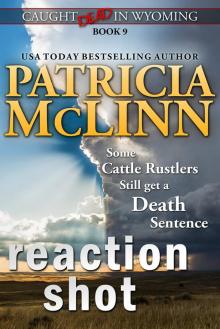 Reaction Shot (Caught Dead in Wyoming, Book 9)
Reaction Shot (Caught Dead in Wyoming, Book 9)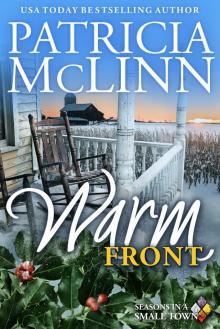 Warm Front
Warm Front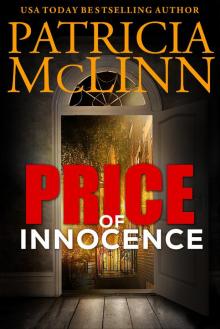 Price of Innocence
Price of Innocence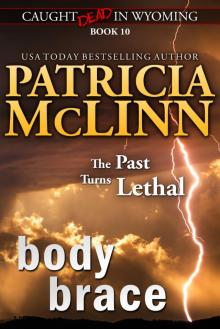 Body Brace (Caught Dead in Wyoming, Book 10)
Body Brace (Caught Dead in Wyoming, Book 10)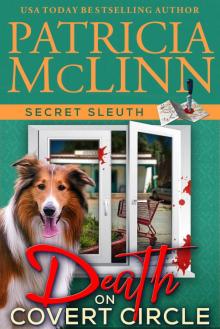 Death on Covert Circle
Death on Covert Circle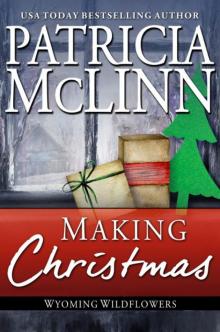 Making Christmas
Making Christmas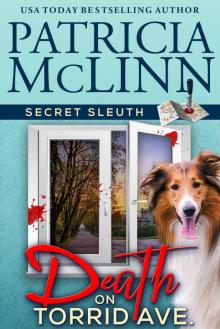 Death on Torrid Ave.
Death on Torrid Ave.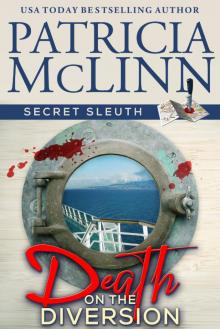 Death on the Diversion
Death on the Diversion The Rancher Meets His Match
The Rancher Meets His Match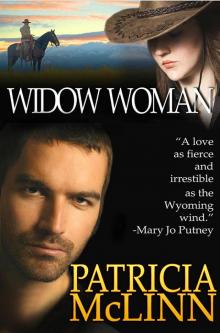 Widow Woman
Widow Woman The Runaway Bride
The Runaway Bride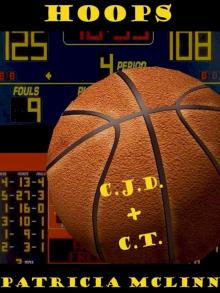 Hoops
Hoops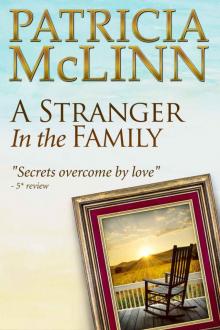 A Stranger in the Family (Book 1, Bardville, Wyoming Trilogy)
A Stranger in the Family (Book 1, Bardville, Wyoming Trilogy)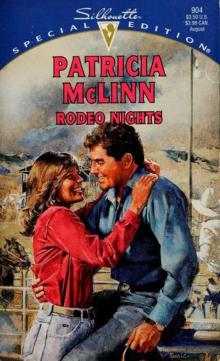 Rodeo Nights
Rodeo Nights Wedding Series Boxed Set (3 Books in 1) (The Wedding Series)
Wedding Series Boxed Set (3 Books in 1) (The Wedding Series)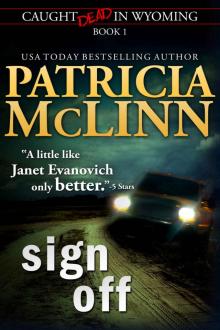 Sign Off (Caught Dead in Wyoming, Book 1)
Sign Off (Caught Dead in Wyoming, Book 1)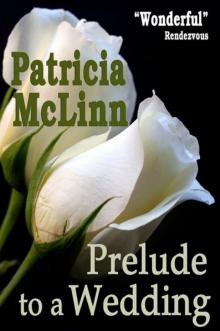 Prelude to a Wedding
Prelude to a Wedding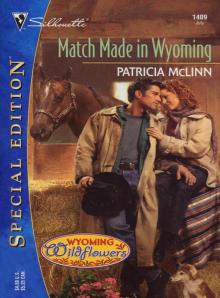 MATCH MADE IN WYOMING
MATCH MADE IN WYOMING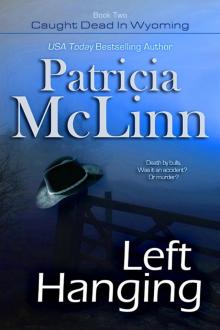 Left Hanging
Left Hanging What Are Friends For?
What Are Friends For?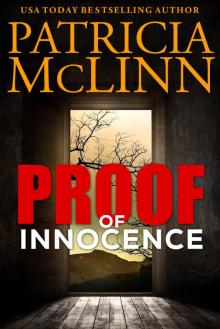 Proof of Innocence
Proof of Innocence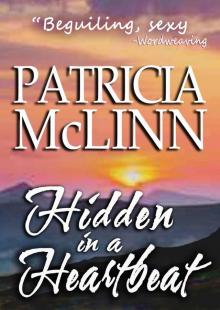 Hidden in a Heartbeat (A Place Called Home, Book 3)
Hidden in a Heartbeat (A Place Called Home, Book 3)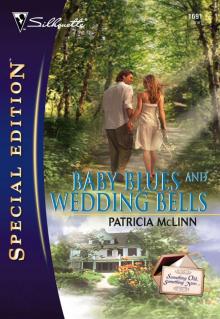 Baby Blues and Wedding Bells
Baby Blues and Wedding Bells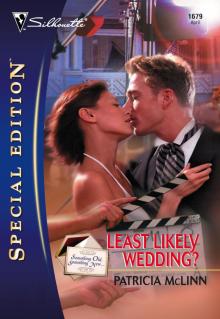 Least Likely Wedding?
Least Likely Wedding? Heart Stealers
Heart Stealers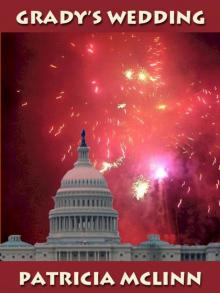 Grady's Wedding
Grady's Wedding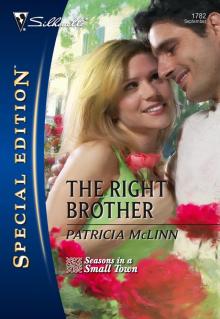 Right Brother
Right Brother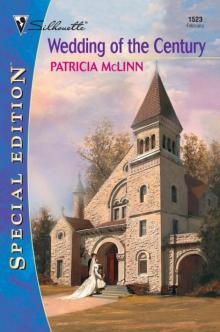 Wedding of the Century
Wedding of the Century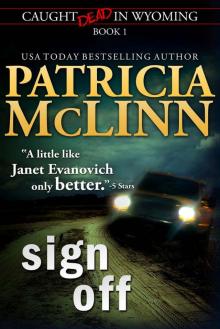 Sign Off
Sign Off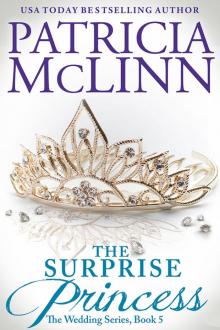 The Surprise Princess
The Surprise Princess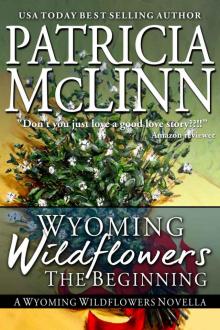 Wyoming Wildflowers: The Beginning
Wyoming Wildflowers: The Beginning